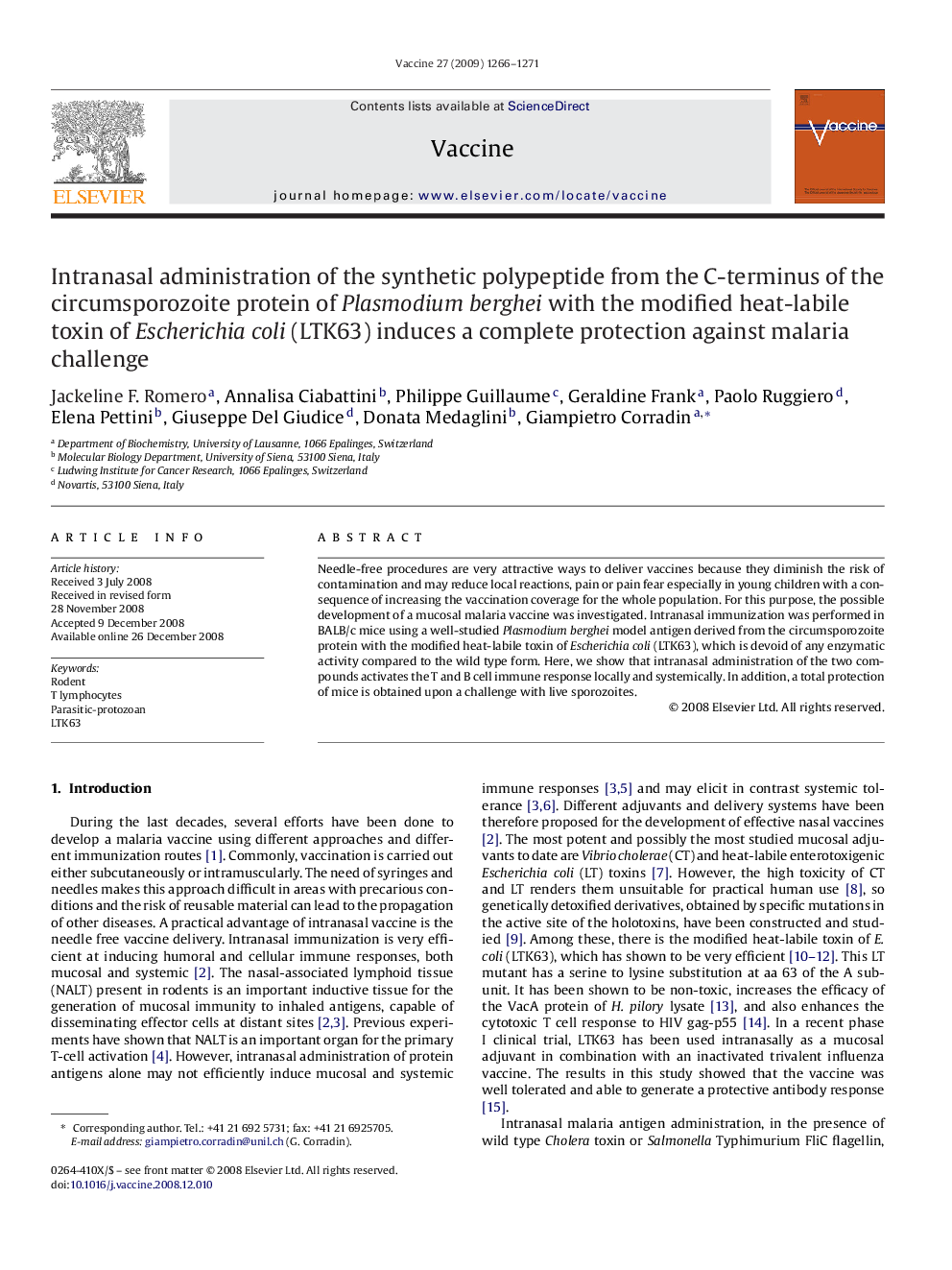| Article ID | Journal | Published Year | Pages | File Type |
|---|---|---|---|---|
| 2406606 | Vaccine | 2009 | 6 Pages |
Needle-free procedures are very attractive ways to deliver vaccines because they diminish the risk of contamination and may reduce local reactions, pain or pain fear especially in young children with a consequence of increasing the vaccination coverage for the whole population. For this purpose, the possible development of a mucosal malaria vaccine was investigated. Intranasal immunization was performed in BALB/c mice using a well-studied Plasmodium berghei model antigen derived from the circumsporozoite protein with the modified heat-labile toxin of Escherichia coli (LTK63), which is devoid of any enzymatic activity compared to the wild type form. Here, we show that intranasal administration of the two compounds activates the T and B cell immune response locally and systemically. In addition, a total protection of mice is obtained upon a challenge with live sporozoites.
